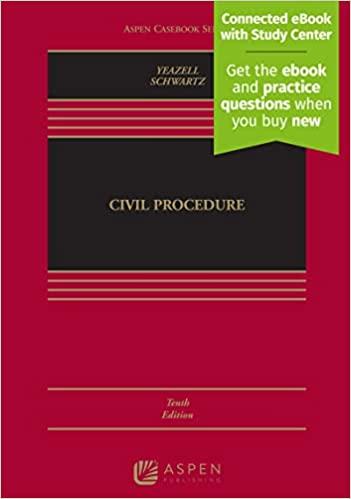Question
Scenario 1: Julie owns an office building and is interested in selling the office building. Jim and Julie meet and Jim offers to pay Julie
Scenario 1: Julie owns an office building and is interested in selling the office building. Jim and Julie meet and Jim offers to pay Julie $10 million. Julie responds, "That is great price and I would like to do that deal". Julie then goes home and thinks about it and decides that the office building is worth $12 million. So, Julie calls Jim and says that she will sell for $12 million. Jim claims that Julie has reneged and that Julie must sell him the office building for $10 million.
- Does Jim have a binding agreement to force Julie to sell at $10 million? What are the legal principles?
Scenario 2: Same scenario, except rather than meeting, Jim sends over a letter of intent signed by him, and the letter of intent simply says: "Julie agrees to sell the office building located at 17 Cherry Tree Lane, Sugar Plum, Colorado, to Jim for $10 million, on December 31, 2022." Julie signs, but then thinks about it and calls Jim and says that she wants to sell for $12 million.
- Does Jim have a binding agreement to force Julie to sell at $10 million. What are the legal principles?
Scenario 3: Same scenario, except that there is no in-person meeting and the letter of intent says: "Jim desires to acquire the office building located at 17 Cherry Tree Lane, Sugar Plum, Colorado, from Julie for $10 million, on December 31, 2022. Jim and Julie agree to negotiate in good faith the definitive documents to evidence the transaction". Jim and Julie sign, but Julie thinks about it again and says that she wants to sell for $12 million.
- Does Jim have a binding agreement to force Julie to sell at $10 million? What are the legal principles?
Scenario 4: Same scenario, except that there is no in-person meeting and the letter of intent says: "Jim desires to acquire the office building located at 17 Cherry Tree Lane, Sugar Plum, Colorado, from Julie for $10 million, on December 31, 2022. Jim and Julie will seek to negotiate definitive documents in their respective sole discretions and neither party shall have any obligation to consummate the transaction unless the definitive documents are executed by both parties". Jim and Julie sign, but Julie thinks about it again and says that she wants to sell for $12 million.
- Does Jim have a binding agreement to force Julie to sell at $10 million? What are the legal principles?
Scenario 5: Julie and Jim execute a definitive purchase agreement for the sale of the office building. Julie does not own the office building. Rather, she is a vice-president of Super Big Real Estate Company ("Super Big"), a publicly traded company. The definitive agreement says that the purchase and sale is confidential. Julie knows that this is a great deal for Super Big and buys stock of Super Big before the transaction is disclosed.
- Can Julie legally buy the stock of Super Big? Assuming that Super Big has the same ethical rules as Hewlett-Packard, can Julie ethically buy the stock of Super Big?
Step by Step Solution
There are 3 Steps involved in it
Step: 1

Get Instant Access to Expert-Tailored Solutions
See step-by-step solutions with expert insights and AI powered tools for academic success
Step: 2

Step: 3

Ace Your Homework with AI
Get the answers you need in no time with our AI-driven, step-by-step assistance
Get Started


